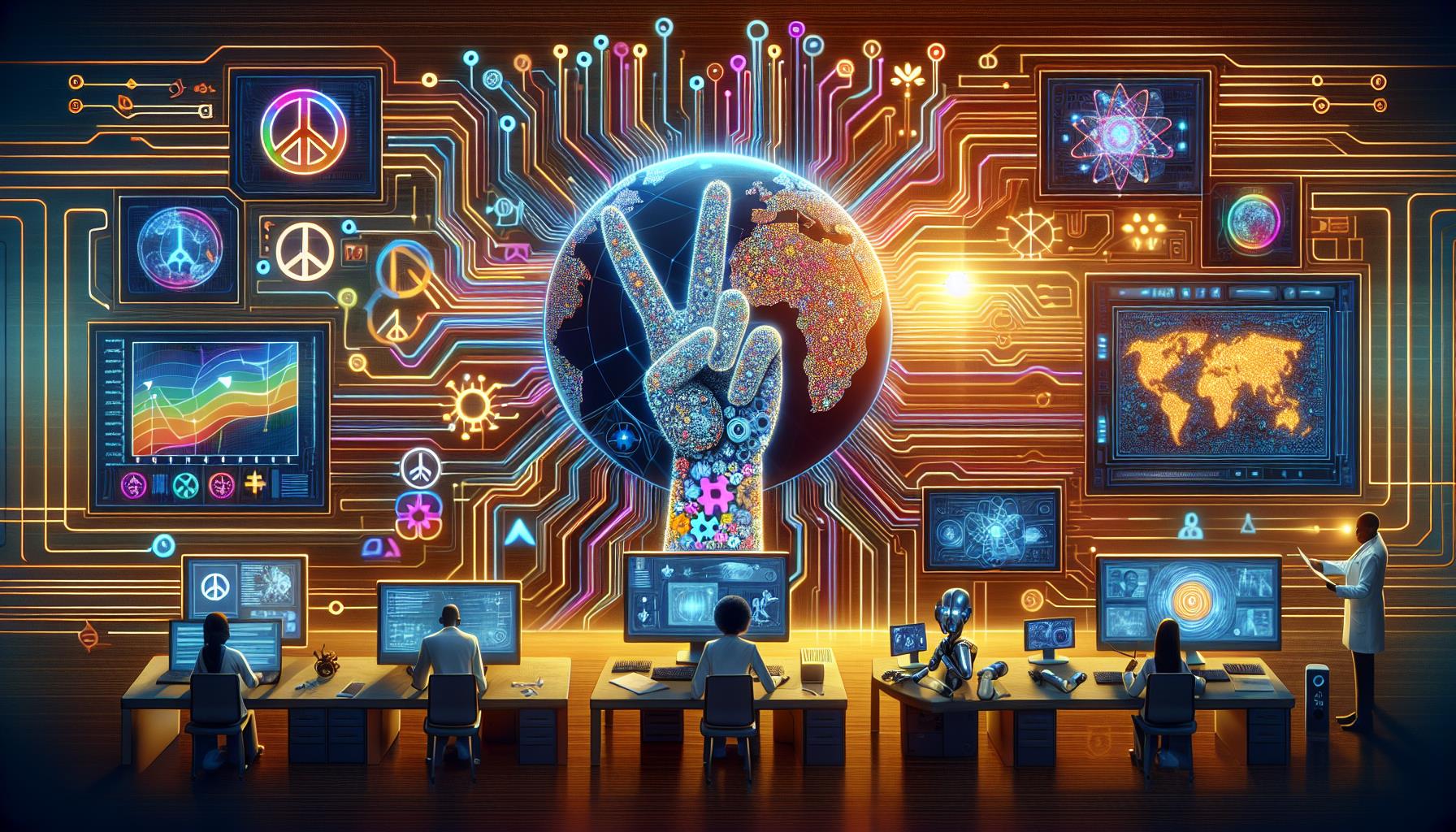Exploring the Potential of Artificial Intelligence in Preventing WarsThe Current State of AI in Conflict Prevention
Artificial intelligence (AI) has advanced significantly in recent years, with applications spanning various sectors, including military and defense. AI’s role in conflict prevention is an area of growing interest and research. Presently, AI systems are being developed to assist in the analysis of data that may predict potential conflicts by identifying warning signs such as political unrest, economic instability, and social tensions.
These systems can process vast amounts of information from multiple sources, including satellite imagery, social media, and news reports. This information can then be used by policymakers and international organizations to make informed decisions that could de-escalate potential conflicts. However, the complexity of human behavior and the unpredictability of international relations pose significant challenges to AI’s predictive capabilities.
AI’s Role in Diplomacy and Negotiation
AI technologies are also being explored for their potential in diplomacy and negotiation. AI can assist human diplomats by providing detailed analysis of historical agreements, cultural nuances, and language translation services. The development of AI systems capable of negotiating in real-time could lead to more effective communication and understanding between parties, potentially preventing conflicts from escalating into war.
Moreover, AI-driven simulations can create multiple future scenarios based on different negotiation strategies. This can help negotiators better understand the potential outcomes of their decisions and work towards peaceful resolutions. However, AI cannot yet replicate the human elements of empathy and trust, which are critical in diplomatic relations.
Autonomous Weapons and Ethical Dilemmas
One of the more controversial applications of AI in the context of war is the development of autonomous weapons systems. These systems can identify and engage targets without human intervention, which raises significant ethical and moral questions. The debate centers around the lack of accountability for AI actions and the potential for unintended consequences, such as civilian casualties.
As a result, there’s a growing call for international treaties and regulations to manage the development and deployment of such weapons. Proponents argue that AI could reduce the human cost of war by minimizing the need for soldiers on the battlefield. However, critics fear that autonomous weapons could lower the threshold for war and lead to an arms race of AI systems, potentially increasing the likelihood of conflicts.
Challenges in AI Implementation
Implementing AI in conflict prevention and resolution comes with significant challenges. AI systems require large amounts of accurate data to make reliable predictions, which can be difficult to obtain in regions where conflicts are most likely to arise. Additionally, there are concerns regarding the potential biases in AI systems that may lead to flawed decision-making.
Another major hurdle is the international community’s varied acceptance of AI in military and defense strategy. While some nations may embrace the technology, others could reject it due to concerns over cybersecurity threats and loss of human control. This disparity has the potential to create new tensions and contribute to the arms race.
International Collaboration and Regulation
For AI to be a viable tool in preventing wars, international collaboration and regulation are crucial. Countries need to work together to establish guidelines that ensure the ethical use of AI in conflict situations. This includes transparency in AI development and deployment, as well as measures to prevent the escalation of AI-enhanced warfare.
Organizations such as the United Nations have begun to address these issues, with discussions around AI and autonomous weapons taking place within the Convention on Certain Conventional Weapons (CCW) framework. These discussions aim to balance the benefits of AI in conflict prevention with the risks associated with its military applications.
The Future of AI in War Prevention
The potential of AI to prevent wars is a subject of both optimism and caution. As AI technology continues to evolve, its applications in conflict prevention could become more effective, potentially saving lives and maintaining global stability. The development of AI that can learn and adapt to complex international environments could revolutionize the way we approach conflict resolution.
However, the path forward must be carefully navigated to ensure that AI serves the greater good and does not become a catalyst for further conflict. It is only through responsible development, ethical considerations, and international cooperation that the true potential of AI in preventing wars can be realized.
